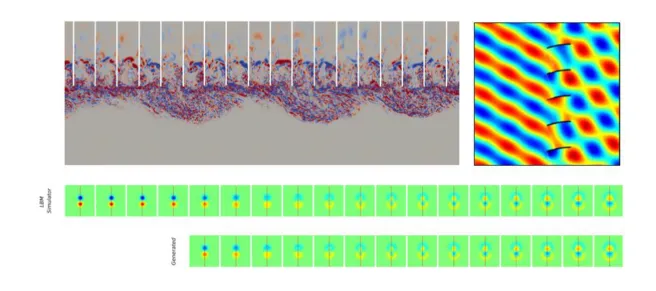Speaker: Prof. Michaël Bauerheim (ISAE-Supaéro, Toulouse, France)
Host: Focus Group Data-Driven Dynamical Systems Analysis in Fluid Mechanics
Date: April 1, 2019, 14:00
Location: Seminar Room MW 1701@5507 (Chair of Thermodynamics, Department of Mechanical Engineering, TUM – Boltzmannstraße 15, 85748 Garching)
Attendance is free. No registration necessary.
Abstract: Inherent features of compressible turbulent flows are the generation of acoustic waves and vortices. Compared with vorticity waves which are convected by the mean flow, acoustic perturbations have the unique property to propagate at a specific velocity known as the sound speed. In subsonic flows, such a perturbation can travel in the upstream direction, thus being able to interact with the very source responsible of the acoustic oscillations.
This coupling can involve vortices, turbulence, or unsteady flames, leading to strong oscillations of the flow. This presentation will highlight some challenges and recent tools to understand and predict this acoustic-flow coupling. The first part is dedicated to the non-linearity of the vortex-noise coupling, including Large Eddy Simulations and Linearized Navier-Stokes Equations. In a second part, challenges in acoustic propagation are addressed through analytical and low-order tools. These approaches will be complemented by first results on acoustic propagation using artificial intelligence, which could open new paths for acoustic studies.
Michaël Bauerheim is an associate professor at ISAE-Supaéro, one of the leading engineering schools for aerospace studies in France. He received his PhD from Cerfacs, working on combustion instabilities in annular combustors using both LES and theoretical analysis. He pursued his research on simulation and theory as a postdoc fellow at Centrale Lyon (France) and ETHZ (Switzerland). His research interests include simulations (LES, DNS, LBM), acoustics, optimization problems, instabilities, and fluid-structure interaction. He now leads a research group at ISAE-Supaéro dedicated to artificial intelligence for aeronautical flow physics.
